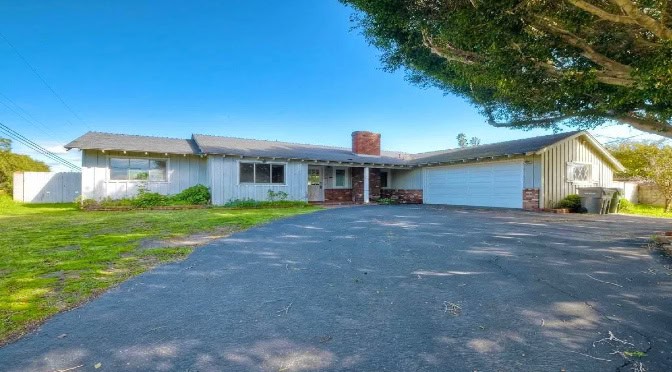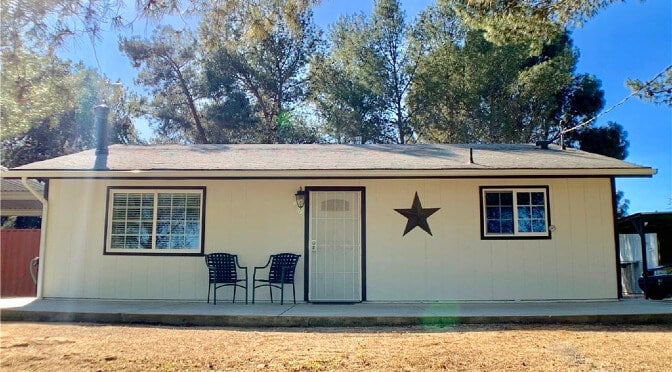
Bridge Loans – Top 44 Frequently Asked Questions
Bridge loans are a popular financial tool used in real estate transactions to bridge the gap between the purchase of a new property and the sale of an existing one. In this comprehensive guide, we will address the top frequently asked questions about bridge loans. Whether you’re a homeowner, investor, or simply curious about bridge loans, this article will provide you with in-depth answers and valuable insights.
What is a Bridge Loan?
A bridge loan is a short-term loan that helps borrowers bridge the financial gap between the purchase of a new property and the sale of an existing one. It provides fast funding to facilitate the transition until more permanent financing can be obtained or until the current property can be sold.
How Does a Bridge Loan Work?
A bridge loan works by providing borrowers with quick access to capital to purchase a new property. The loan is secured by the borrower’s existing property, and the funds can be used as a down payment for the new property. Once the existing property is sold, the bridge loan is repaid in full.
If the borrower has a sufficient cash down payment available for the new purchase, a bridge loan can also be used to directly purchase the new property. If needed by the borrower, 2 bridge loans can be used simultaneously. A bridge loan can be secured against the current property to raise the funds for a down payment and an additional bridge loan can be secured by the new property being purchased.
When is a Bridge Loan Used?
Bridge loans are commonly used in situations where a homeowner wants to buy a new home before selling their current one. It can also be used by real estate investors to secure time-sensitive deals or take advantage of short-term investment opportunities.
What are the Benefits of a Bridge Loan?
Bridge loans offer several benefits, including quick access to funds, flexible timing and the ability to avoid contingent offers for new purchases. They provide borrowers with the financial flexibility to capitalize on opportunities, bridge financing gaps and facilitate smooth transitions between properties.
How Long Does a Bridge Loan Term Typically Last?
The duration of a bridge loan term is short-term. Residential bridge loans are commonly up to 11 months. The specific bridge loan term can vary for investment property (1-2 years) depending on the lender, the need of the borrower and the complexity of the loan scenario.
What is the Interest Rate on a Bridge Loan?
Bridge loan interest rates tend to be higher than traditional mortgage rates due to the short-term nature and additional risks involved. The rates can vary based on market conditions, the borrower’s creditworthiness, the loan to value being requested and the specific property being used as collateral.
How Much Can I Borrow with a Bridge Loan?
The loan amount the borrower can obtain with a bridge loan depends on various factors such as the value of property being used as collateral, the purchase price of the new property, the financial strength of the borrower and the lender’s maximum loan to value ratio. Bridge loans in the range of 70-75% are typically available.
What are the Eligibility Requirements for a Bridge Loan?
Eligibility requirements for bridge loans vary between lenders. The main requirement is having sufficient equity in the existing property or a sufficient down payment available for the down payment of the new property. The borrower will need to have a reasonable exit strategy which in this type of scenario is typically selling the existing property. The bridge loan lender will also consider the borrower’s credit and income but to a lesser degree.
Can I Get a Bridge Loan with Bad Credit?
While bridge loans are generally easier to qualify for than traditional loans, having bad credit can still impact loan approval. For bad credit, the bridge loan lender will want to ensure that the sale of the existing property will be enough to pay off the entire bridge loan balance, since the borrower’s credit issues will make it harder or impossible to refinance with a traditional lender.
What Types of Properties Can be Financed with a Bridge Loan?
Bridge loans can technically be used for any type of real estate. The most popular type of properties are residential primary residences followed by various commercial properties for investment purpose.
Can I Use a Bridge Loan for Both Residential and Commercial Properties?
Yes, bridge loans can be used for both residential and commercial properties. Whether purchasing a new primary residence or a commercial investment property, a bridge loan can provide the necessary funds to facilitate the transaction. A residential owner occupied bridge loan has significant differences from an investment property bridge loan but they accomplish the same goal.
Are There Any Alternatives to Bridge Loans?
Yes, there are alternatives to bridge loans depending on the specific needs of the borrower and the specific scenario. Some alternatives include home equity lines of credit (HELOC), personal loans, loans from retirement accounts or borrowing from friends and family.
Do I Need to Make Monthly Payments on a Bridge Loan?
Monthly payments are usually required for bridge loans. Residential bridge loans for primary residences will require a monthly payment. Bridge loans for investment purpose may allow for deferring monthly payments or funds may be held back from the loan amount by the lender in order to make monthly payments for a specified amount of time.
Can I Pay off a Bridge Loan Early?
In most cases, bridge loans can be paid off early without incurring any prepayment penalties. Residential bridge loans do not have prepayment penalties. Bridge loans for investment purpose may have a prepayment penalty or minimum interest requirement that must be paid. It’s essential to ask the lender upfront about the loan terms.
What Happens if I Can’t Repay a Bridge Loan?
If a bridge loan cannot be repaid, it can lead to a potential default or foreclosure and damage a borrower’s credit score. Typically, a bridge loan is repaid by either selling or refinancing the property. It is crucial for the borrower to carefully assess their financial capabilities and have a solid repayment plan before taking out a bridge loan.
Can I Use a Bridge Loan to Purchase a New Home Before Selling My Current One?
Yes, using a bridge loan to purchase a new home prior to selling an existing home is one of the most common scenarios. This allows the borrower to avoid contingent offers and secure the new home without the stress of timing the sale of the existing property.
How Long Does it Take to Get Approved for a Bridge Loan?
The approval process for a bridge loan can vary depending on the lender and the complexity of the transaction. In some cases, bridge loan approval can be provided the same day the lender receives the borrower’s application form. Typically, it takes 1-3 days to obtain approval once the borrower has provided the required documentation.
Are Bridge Loans Available for Investment Properties?
Yes, bridge loans are available for investment properties and rental properties. Investors can use bridge loans to finance acquisitions, renovations, or cover carrying costs until the property is sold or refinanced.
Can I Use a Bridge Loan for Renovations?
Yes, bridge loans can be used for renovations, whether it’s a residential investment property project or a commercial property renovation. The funds can be utilized to cover the costs of construction, repairs, and upgrades.
What Documentation is Required for a Bridge Loan Application?
The documentation required for a bridge loan application will depend of the specific scenario. For a residential bridge loan, the main documentation needed is the loan application form. Additional documentation may be needed to support the information on the application such as tax returns, bank statements and credit information. Residential bridge loans are much lighter on the documentation compared to traditional primary residence loans.
For a bridge loan for investment property, needed documentation may include proof of income, bank statements, tax returns, property appraisals, purchase contracts, and information about the property being sold. The documentation will vary from lender to lender and vary based on the loan scenario.
Do I Need an Appraisal for a Bridge Loan?
In some cases, an appraisal is required for a bridge loan. It helps determine the value of the properties involved, which is crucial for the lender to assess the loan amount and loan to value ratio.
Some bridge loan lenders will conduct their own Broker Price Opinion which can be completed much more quickly than a full appraisal.
Are There Any Upfront Fees Associated with Bridge Loans?
Bridge loans may involve upfront fees such as loan origination fees, processing fees, appraisal fees and various other fees. The fees vary between different bridge loan lenders, so it’s essential to understand what the lender is charging prior to committing to a specific loan. In some situations, the fees can be added to the loan amount so no out of pocket funds will be required.
Can I Use a Bridge Loan to Pay off Existing Mortgage Debt?
Yes, bridge loans can be used to pay off existing mortgage debt and take out additional funds with a new 1st position loan against the property. This may be necessary to maximize the highest loan to value loan.
Can I Use a Bridge Loan to Buy a Property at Auction?
Yes, bridge loans can be used for purchasing properties at auctions. If the bridge loan will be secured against the property being purchased, the auction will have to allow for escrow and obtaining title insurance.
If the auction does not allow for going through escrow and they require all cash upfront, the borrower can take out a bridge loan against their current property to raise the cash necessary for an all-cash auction purchase.
Can I Use a Bridge Loan to Consolidate Other Debts?
Bridge loans are typically not intended for debt consolidation purposes. They are primarily designed to facilitate short-term real estate transactions. A borrower seeking debt consolidation should explore other loan options specifically for that purpose.
Are Bridge Loans Available for Self-Employed Individuals?
Yes, self-employed individuals can qualify for bridge loans, provided they have sufficient equity in their current property. The self-employed borrower will also need an exit strategy that makes sense and that allows for paying off the bridge loan(s) completely within the term of the bridge loan.
Can I Get a Bridge Loan if I Already Have a Mortgage on My Current Property?
Yes, having an existing mortgage on a current property does not necessarily prevent the borrower from obtaining a bridge loan. Bridge loan lenders will assess the equity in the property and determine if the needed loan amount can be borrowed.
How Does the Interest on a Bridge Loan Accrue?
Interest on bridge loans can accrue in different ways, depending on the type of bridge loan needed. Residential bridge loans typically have a payment calculated on a 30 year fully amortized loan, which is similar to an interest only payment in the beginning of the loan.
Bridge loans for investment property may also have a 30 year amortized payment or be interest only.
Can I Use a Bridge Loan to Purchase Land?
Yes, bridge loans can be used to purchase land. Whether you’re acquiring vacant land for development or investment purposes, a bridge loan can provide the necessary financing to seize the opportunity.
Are There Any Tax Implications Associated with Bridge Loans?
Obtaining a bridge loan to purchase or refinance a property is typically not considered a taxable event. It’s advisable to consult with a tax professional or accountant to understand the potential tax implications and benefits specific to your situation.
Can I Use a Bridge Loan for a Commercial Property Acquisition?
Bridge loans can be used for commercial property acquisitions for various property types including office building, retail space, or industrial property. The flexibility and quick access to capital make short-term bridge loans a popular choice for commercial real estate investors.
Can I Use a Bridge Loan to Fund a Real Estate Development Project?
Yes, bridge loans can be used to fund real estate development projects. Whether you’re embarking on a residential or commercial development, a bridge loan can provide the necessary capital for acquisition, construction, and other development-related expenses. However, lenders may have specific requirements and criteria for funding development projects, so it’s crucial to engage with experienced lenders specializing in this area.
What are the Closing Costs Associated with Bridge Loans?
Closing costs for bridge loans typically include loan origination fees, title insurance, escrow, notary and recording fees. The costs may vary based on the lender, location of the property, loan amount requested and the complexity of the transaction. It’s important to review the loan terms and discuss closing costs with the lender prior to beginning the bridge loan process.
Can I Use a Bridge Loan for a Property Purchase in a Seller’s Market?
Yes, using a bridge loan for a property purchase in a seller’s market can provide a competitive advantage. In a seller’s market, properties often receive multiple offers, and sellers may prefer buyers who can close the deal quickly. Offers contingent on the buyer first selling their existing property are not likely to be considered. A bridge loan allows the borrower to secure the funds needed to make a non-contingent offer, potentially increasing the chances of having the offer accepted.
Are Bridge Loans Available for Distressed Property Acquisitions?
Bridge loans can be an excellent financing option for distressed property acquisitions. Distressed properties may include foreclosures, short sales or properties in need of significant repairs.
Properties that need significant repair or improvements will likely not qualify for traditional financing. A short-term bridge loans provide the necessary capital to quickly acquire the property, make the necessary repairs and then sale or refinance into a long-term traditional loan.
Can I Use a Bridge Loan to Finance a Vacation Home Purchase?
Yes, bridge loans can be used to finance vacation home purchases. Whether purchasing a second home for personal use or as an investment property, a short-term bridge loan can offer financing to acquire the property while arranging for more permanent financing or waiting to sell an existing property.
What is the Difference Between a Bridge Loan and a Construction Loan?
While both bridge loans and construction loans are both temporary financing, they differ in their primary functions. Bridge loans bridge the gap between property transactions, providing short-term financing until the sale of an existing property or permanent financing is obtained. Construction loans specifically fund new construction or significant renovations, typically disbursed in stages as the project progresses.
Are Bridge Loans Available for Borrowers with Non-Traditional Income Sources?
Bridge loans can be obtained by borrowers with non-traditional income sources such as self-employment, retirement income or borrowers who are not currently employed. Residential bridge loans are a special financing tool that allows the borrower to be approved without having to meet a debt to income ratio requirement.
Can I Use a Bridge Loan to Buy Out a Co-owner of a Property?
Yes, a bridge loan can be used to buy out a co-owner of a property. Whether it’s a personal arrangement or a business-related buyout, a short-term bridge loan can provide the necessary funds to complete the transaction. It’s important to consult legal professionals and ensure proper documentation and agreements are in place to protect all parties involved.
Are Bridge Loans Available for Condominium Purchases?
Yes, bridge loans can be used for condominium purchases. Whether it’s a residential condominium or a commercial unit, bridge loans can provide temporary financing to acquire the property.
What is the Minimum Credit Score Required for a Bridge Loan?
The minimum credit score required for a bridge loan will vary based on the bridge loan lender and based on the specific loan scenario. If the sale of the existing property will pay off the bridge loan in full the lender will likely be able to accept a low credit score. If the exit strategy for the bridge loan involves refinancing with a traditional lender, the bridge lender will likely require a credit score high enough to qualify for the refinance.
While bridge loans may be more flexible than traditional loans, a higher credit score generally increases the chances of loan approval and favorable terms.
Can I Use a Bridge Loan for Estate Planning Purposes?
Bridge loans can be utilized for estate planning purposes in certain situations. For example, if an individual inherits a property and needs immediate financing to pay expenses, repair the property or buyout beneficiaries, a bridge loan made directly to the trust or estate can provide the necessary funds. It’s essential to consult with estate planning professionals to determine the most suitable financing options for your specific needs.
Are Bridge Loans Available for Properties in Foreclosure or Pre-foreclosure?
Bridge loans can be available for properties in foreclosure or pre-foreclosure. These loans can provide distressed property owners with an opportunity to stabilize their financial situation or sell the property quickly. It’s important to engage with lenders who specialize in distressed property transactions and understand the potential risks and legal implications involved.
Can I Use a Bridge Loan for a Property Purchase in a Different State?
Yes, bridge loans can be used for property purchases in different states. In many cases, an individual will take out a bridge loan on their property in one state and then use the loan proceeds to purchase a new property in another. Whether you’re relocating, investing in out-of-state properties, or acquiring vacation homes, a bridge loan can help facilitate the transaction.
The information provided herein is for educational purposes only. North Coast Financial is not providing any legal, tax or financial advice.
Recent Bridge Loans Funded by North Coast Financial
Bridge Loans Resource Guide
California Bridge Loan Request
We will contact you to review the loan scenario and provide a quote.




